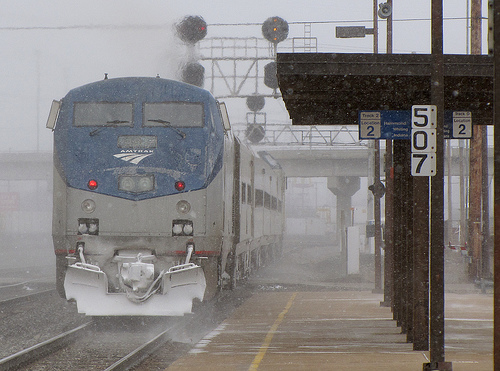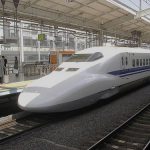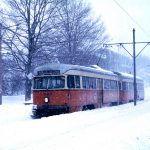How Amtrak is conquering the East Coast
‘Tis the season for travel. With the trifecta of Thanksgiving, Christmas and New Year’s Eve, Americans are busy shuttling between the country’s major cities to visit friends and family — and trying to save time in the doing. Some interesting research from the University Transportation Research Center at CCNY show that train travel is outpacing air travel as an option… at least on the East Coast.

Amtrak’s market share of travel in the corridor from Washington D.C. to Boston is growing, in part due to more productive travel time. From Amtrak_Russ.
As CityLab reports, the research, led by Dr. Camille Kamga at the CCNY center, shows “Amtrak’s gradual conquest of the air-rail market in the U.S.’s Northeast Corridor,” specifically between New York and Washington, DC, and New York and Boston. In 2000, passenger rail covered about 37% of the market between New York and Washington, DC trips. That same year, it accounted for 20% of the market between New York and Boston. Two years later, those percentages grew to 75% and 54%, respectively. (Check out the chart here.)
Why are travelers opting for trains over planes for regional travel between these cities? Part of the reason is that train travel affords more productive travel time. As CityLab reported in 2012, “When it comes to productivity in transit, for instance, the train bests its alternatives beyond a doubt. You can’t even begin to consider working as you drive… And airplane travel, with its limited use of electronics and generally disruptive procedure, isn’t very conducive to prolonged focus.” Plus, air travel demands a host of “pre- and post-flight inconveniences,” according to Kamga, including travel to and from the airport, check-in, bag check, security, and time spent waiting.
CityLab charted in-vehicle time and total travel time on rail and air routes between Washington, DC, and New York — see the chart here — and found a “clear advantage” for train travel, even when total travel time for both options are comparable. For example, the Acela train in-vehicle time between Washington, DC and New York City clocks in under 170 minutes, with a total travel time around 252 minutes. The DCA-JFK flight runs about 58 minutes in-vehicle, while total travel time for that route is about 225 minutes. That translates into a lot of extra time spent (and, often, lost) outside the plane.
For Boston-NYC trips, data shows a similar, though less pronounced, trend. Air travel “has a clear benefit on total travel time in this part of the corridor,” CityLab notes, but in-vehicle time is still more productively spent on a train, not a plane. For Amtrak regional trips between Boston and NYC, in-vehicle time clocks in around 243 minutes, with total travel time under 279 minutes. Meanwhile, a flight between Boston and NYC’s LaGuardia Airport runs under 66 minutes in in-vehicle time, with total travel time around 220 minutes.
Of course, these figures don’t account for delays, and Amtrak’s on-time performance has been under scrutiny. Back in August, The Philadelphia Inquirer reported that Amtrak trains have been late almost 30% of the time over the preceding 12 months, which was “considerably worse” than the prior year’s performance. Part of the delays were due to the fact that most Amtrak routes are on tracks owned and run by freight railroads, which don’t necessarily give priority to passenger trains. Northeast Regional trains, running between Washington D.C. and Boston, were on time 76% of the time for the first eight months of the fiscal year 2014 — a figure that was down from 86.7% over the same period in 2013.
Yet the trend has implications for developing transportation infrastructure going forward. As Kamga explains, “A transportation paradigm shift is underway in the United States as travelers move away from cars and planes and toward other forms of mobility, including rail.… Rising Amtrak ridership, which is up even without HSR [high-speed rail], points to a growing market for the kind of fast and reliable intercity rail service that HSR could provide.”
Related Posts
Category: Transportation

















